Operone – Bühnenwerke mit Musik
Oper – Operette – Musical – Ballett
Die Angaben zu den Opern erfolgen mit freundlicher Genehmigung der beteiligten Verlage:
- Die Musik in Geschichte und Gegenwart (c)
- Bärenreiter-Verlag Karl Vötterle
- J. B. Metzlersche Verlagsbuchhandlung
- Carl Ernst Poeschel Verlag
Oper
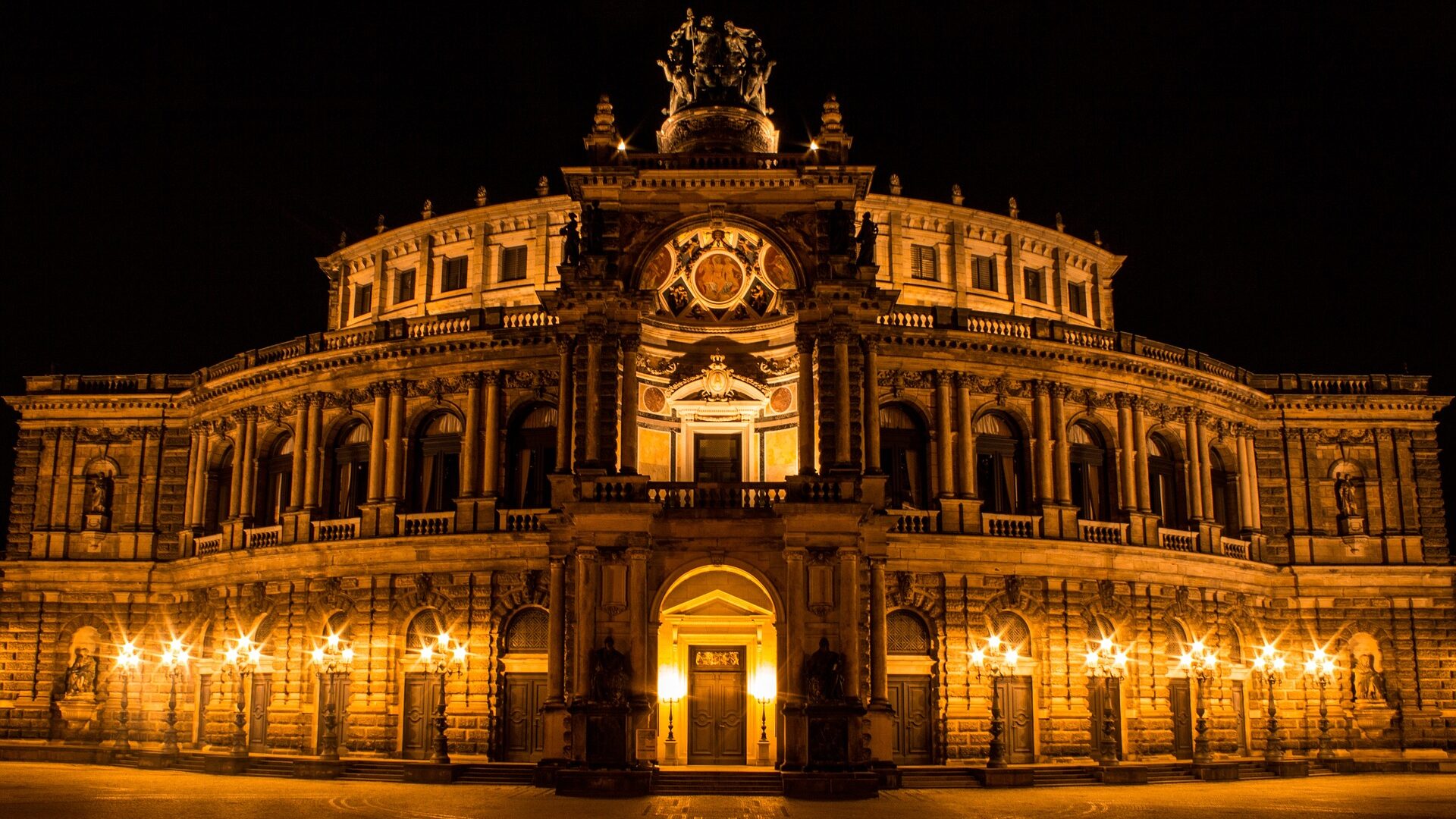
Oper kann ein einzigartiges und belebendes Erlebnis sein, das unser Leben bereichert und uns ein neues Verständnis der Welt vermittelt. Es ermöglicht uns, uns auf eine emotionale und visuelle Reise zu begeben und die unglaubliche Schönheit und Komplexität der menschlichen Stimme und Musik zu entdecken. Lassen Sie uns gemeinsam herausfinden, wie Oper Ihr Leben bereichern kann!
Einführung in die Welt der Oper
Wenn du bisher noch keine Erfahrungen mit Opern gemacht hast, kann der Einstieg in diese Welt zunächst etwas überwältigend wirken. Doch keine Sorge, es gibt einige Dinge, die du beachten kannst, um dich besser zurechtzufinden. Zunächst einmal solltest du dich mit den Grundlagen der Oper vertraut machen, wie zum Beispiel den verschiedenen Stimmtypen und den typischen musikalischen Strukturen. Eine gute Möglichkeit, um dies zu tun, ist es, sich einige der bekanntesten Opern anzuhören und dabei auf die verschiedenen Elemente zu achten.
Außerdem ist es hilfreich, sich mit der Handlung und den Charakteren vertraut zu machen, um die Geschichte besser nachvollziehen zu können. Wenn du dann das erste Mal eine Oper besuchst, solltest du darauf achten, angemessene Kleidung zu tragen und pünktlich zu sein, um den Beginn nicht zu verpassen. Mit diesen Tipps wird dein Einstieg in die Welt der Oper sicherlich gelingen und du wirst schnell merken, wie bereichernd diese Kunstform sein kann.
Warum Oper einzigartig ist
Wenn du dich fragst, warum Oper einzigartig ist, dann solltest du wissen, dass diese Kunstform eine einzigartige Mischung aus Gesang, Musik, Schauspiel und Bühnenbild ist. Eine Oper zu besuchen ist ein Erlebnis, das alle Sinne anspricht und dich in eine andere Welt entführt. Die Musik ist oft von großer emotionaler Tiefe und kann dich tief berühren. Die Gesangsdarbietungen der Opernsänger sind beeindruckend und erfordern jahrelange Ausbildung und Übung.
Die Bühnenbilder und Kostüme sind kunstvoll gestaltet und tragen zur Atmosphäre der Aufführung bei. Oper ist eine Kunstform, die dich auf eine einzigartige Weise bereichern kann und dir neue Perspektiven eröffnet. Wenn du dich auf eine Opernaufführung einlässt, wirst du mit Sicherheit eine unvergessliche Erfahrung machen.
Wie eine Oper dein Leben bereichern kann
Wenn du Opera noch nicht ausprobiert hast, dann solltest du das unbedingt tun! Opera ist ein leistungsstarker Browser, der dir das Surfen im Internet erleichtert und dein Leben auf vielfältige Weise bereichern kann. Mit Opera kannst du zum Beispiel schneller und sicherer surfen, da der Browser mit einer integrierten Ad-Blocker-Funktion ausgestattet ist. Das bedeutet, dass du keine unerwünschten Anzeigen mehr auf Websites sehen musst.
Außerdem bietet Opera viele nützliche Funktionen wie einen integrierten VPN-Dienst, der deine Online-Privatsphäre schützt und es dir ermöglicht, auf blockierte Websites zuzugreifen. Opera ist auch sehr benutzerfreundlich und bietet eine intuitive Benutzeroberfläche, die es dir leicht macht, alle Funktionen zu nutzen. Probier es aus und entdecke, wie Opera dein Leben bereichern kann!
Wie du am besten in die Oper eintauchst
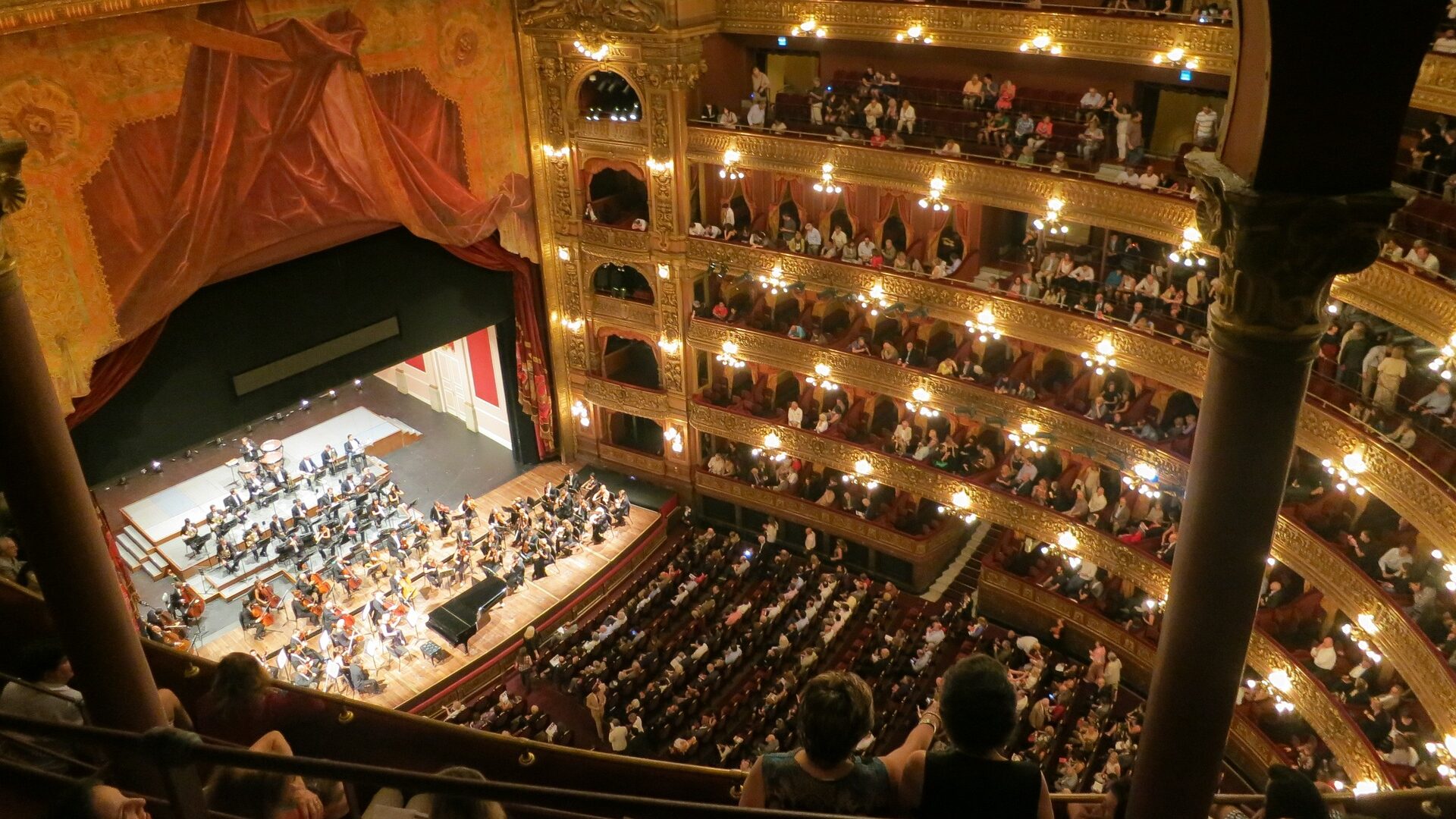
Wenn du noch nie in der Oper warst, kann es ein wenig einschüchternd sein, in diese Welt einzutauchen. Aber keine Sorge, es gibt ein paar einfache Schritte, die du befolgen kannst, um das Beste aus deinem Erlebnis herauszuholen. Zunächst einmal solltest du dich auf die Handlung und die Musik konzentrieren. Versuche, die Geschichte zu verstehen und die Musik zu fühlen. Wenn du Schwierigkeiten hast, der Handlung zu folgen, lies den Inhalt des Stücks im Voraus.
Ein weiterer Tipp ist, die Kleidungsvorschriften zu beachten. Zwar gibt es keine strikten Regeln, aber es ist immer besser, sich etwas schicker zu kleiden. Und schließlich, lass dich einfach auf das Erlebnis ein. Oper ist eine Kunstform, die dazu da ist, uns zu bewegen und zu berühren. Wenn du dich darauf einlässt, wirst du merken, wie sehr sie dein Leben bereichern kann.
Die Vorteile von Oper im Vergleich zu anderen Musikrichtungen
Wenn du auf der Suche nach einer Musikrichtung bist, die dich auf eine emotionale Reise mitnimmt und dich tief berührt, dann solltest du unbedingt die Oper entdecken. Im Vergleich zu anderen Musikrichtungen bietet die Oper viele Vorteile. Zum einen ist die Oper eine Kunstform, die eine einzigartige Verbindung aus Musik, Gesang und Schauspiel darstellt. Dadurch entsteht eine unglaubliche Intensität, die dich in den Bann zieht und dich tief in die Geschichte eintauchen lässt. Zum anderen bietet die Oper eine Vielfalt an Themen, die von Liebe und Leidenschaft bis hin zu Macht und Intrigen reichen.
Dadurch ist für jeden Geschmack etwas dabei. Ein weiterer Vorteil der Oper ist die Möglichkeit, die Stimmen der Sängerinnen und Sänger zu genießen. Die Stimmen sind oft so kraftvoll und emotional, dass sie dich tief berühren und Gänsehaut verursachen können. Wenn du also auf der Suche nach einer Musikrichtung bist, die dich auf eine emotionale Reise mitnimmt und dich tief berührt, dann solltest du unbedingt die Oper entdecken.
Welche Arten von Opern es gibt und wie sie sich unterscheiden
Wenn du an Oper denkst, denkst du vielleicht an klassische Stücke wie „Die Zauberflöte“ oder „Carmen“. Aber wusstest du, dass es viele verschiedene Arten von Opern gibt? Eine der bekanntesten ist die italienische Oper, die oft von leidenschaftlichen Liebesgeschichten und dramatischen Arien geprägt ist. Französische Opern sind bekannt für ihre opulenten Bühnenbilder und ihre Verwendung von Ballett. Deutsche Opern sind oft komplex und haben eine tiefere Bedeutung, während englische Opern oft humorvoll und leichter sind.
Es gibt auch moderne Opern, die sich von traditionellen Opern unterscheiden können, indem sie zum Beispiel elektronische Musik oder Videoprojektionen verwenden. Egal, welche Art von Oper du bevorzugst, sie alle haben eines gemeinsam: Sie erzählen Geschichten durch Musik und Gesang und können dein Leben auf eine einzigartige und bereichernde Weise beeinflussen.
Was du beim Besuch einer Oper beachten musst
Wenn du zum ersten Mal eine Oper besuchst, kann es ein wenig überwältigend sein. Aber keine Sorge, es gibt ein paar Dinge, die du beachten kannst, um das Beste aus deinem Erlebnis herauszuholen. Zunächst einmal solltest du dich über die Handlung und die Charaktere im Voraus informieren. Auf diese Weise wirst du die Geschichte besser verstehen und dich in die Handlung hineinversetzen können. Außerdem solltest du auf angemessene Kleidung achten.
Es ist üblich, sich für eine Oper schick zu kleiden, aber es ist auch wichtig, dass du dich wohl fühlst. Und schließlich solltest du während der Vorstellung ruhig sein und dich auf die Musik und die Aufführung konzentrieren. Wenn du diese Tipps befolgst, wirst du sicherlich eine unvergessliche Erfahrung haben und die Schönheit und Magie der Oper entdecken.
Wirksame Techniken, um deine Liebe zur Oper zu vertiefen
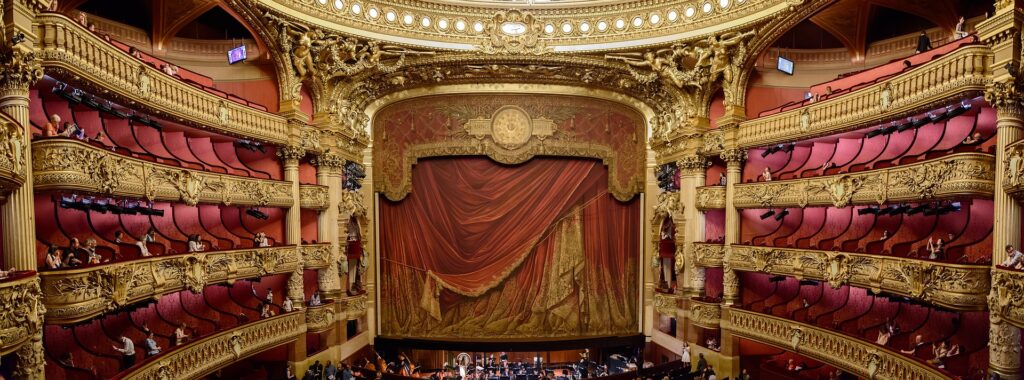
Wenn du bereits ein Fan der Oper bist oder einfach nur neugierig auf dieses Genre, gibt es viele Techniken, um deine Liebe zur Oper zu vertiefen. Eine Möglichkeit ist, dich mit der Geschichte und den Hintergründen der Opern vertraut zu machen. Wenn du die Handlung und die Charaktere verstehst, kannst du dich besser in die Musik und die Emotionen der Oper einfühlen. Eine weitere Technik ist, verschiedene Interpretationen und Aufführungen desselben Stücks zu vergleichen.
Jeder Dirigent und jedes Ensemble bringt eine einzigartige Perspektive auf die Musik und die Inszenierung mit, was dir helfen kann, deine eigene Vorstellungskraft zu erweitern. Schließlich kann es hilfreich sein, sich mit anderen Opernliebhabern zu vernetzen und an Diskussionen teilzunehmen. Das Teilen von Erfahrungen und Meinungen kann deine Liebe zur Oper noch weiter vertiefen und dich dazu inspirieren, neue Werke zu entdecken.
Und so kommen wir zum Ende unseres Artikels. Wie du nun erfahren hast, kann die Oper dein Leben auf vielfältige Weise bereichern. Ob du dich von der Musik verzaubern lässt, dich in die Geschichten hineinversetzt oder einfach nur die beeindruckenden Bühnenbilder bewunderst – die Oper bietet für jeden etwas. Auch wenn du bisher noch keine Erfahrung mit der Oper hast, solltest du ihr eine Chance geben. Vielleicht wirst du überrascht sein, wie sehr sie dich begeistern kann. In jedem Fall lohnt es sich, die Oper als eine Form der Kunst und Kultur zu entdecken und in dein Leben zu integrieren.
Operette
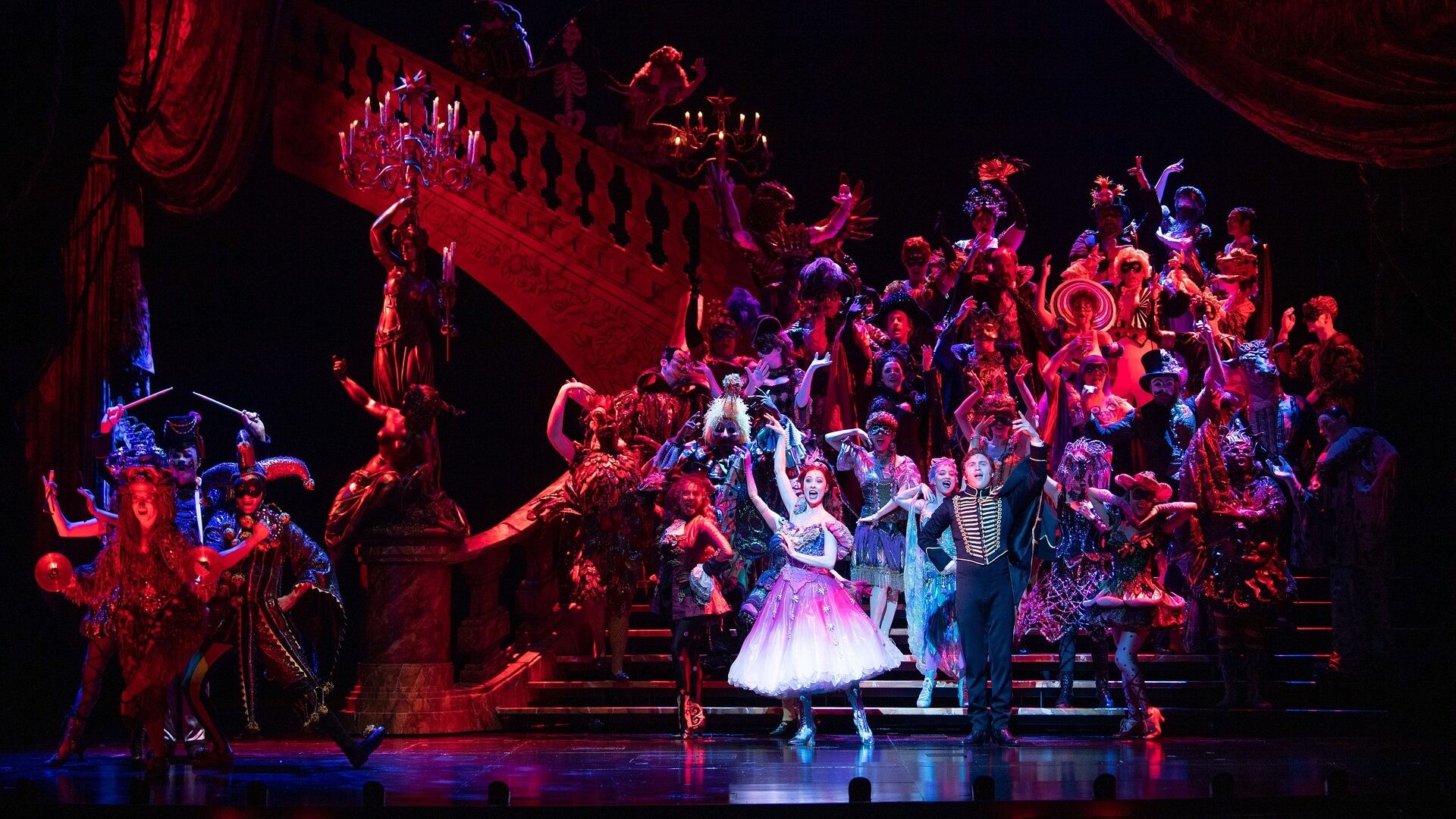
Operetten sind ein wundervolles Genre, das sowohl durch seine Musik als auch durch seine Geschichten begeistert. Sie sind voller Charme und Lebendigkeit, mit einer Prise Humor und einer ordentlichen Portion Charme. In diesem Blog werfen wir einen Blick auf das, was Operetten so einzigartig macht und warum sie bis heute so beliebt sind.
Was ist eine Operette?
Eine Operette ist eine musikalische Gattung, die in der zweiten Hälfte des 19. Jahrhunderts entstanden ist und bis heute immer noch beliebt ist. Im Gegensatz zur Oper ist die Handlung der Operette meist leichter und humorvoller. Die Musik ist oft eingängiger und enthält viele Gesangsnummern und Tanzszenen. Operetten sind auch bekannt für ihre farbenfrohen Kostüme und aufwendigen Bühnenbilder. Einige der bekanntesten Operetten sind „Die Fledermaus“ von Johann Strauss II und „Die lustige Witwe“ von Franz Lehár. Operetten sind perfekt für diejenigen, die eine unterhaltsame und leichte musikalische Erfahrung suchen.
Die Ursprünge der Operette
Die Operette hat ihre Wurzeln im 19. Jahrhundert und entstand aus der Verbindung von klassischer Musik und populären Volksliedern. Die ersten Operetten wurden in Frankreich und Österreich aufgeführt und waren eine Mischung aus Gesang, Tanz und Schauspiel. Die Handlungen waren meist leicht und humorvoll und die Musik war eingängig und mitreißend. Die Operette wurde schnell zum Publikumsliebling und verbreitete sich schnell in ganz Europa. Besonders in Deutschland und Österreich erlebte die Operette in den 1920er Jahren ihre Blütezeit. Heute ist die Operette immer noch beliebt und wird auf Bühnen weltweit aufgeführt.
Der Unterschied zwischen einer Operette und einer Oper
Eine Operette unterscheidet sich von einer Oper in einigen wichtigen Punkten. Während eine Oper ein ernstes und tragisches Thema hat, ist eine Operette eher leicht und unterhaltsam. Die Musik in einer Operette ist oft einfacher und eingängiger als in einer Oper. Eine Operette hat auch oft mehr Dialoge und weniger Gesang als eine Oper. Die Charaktere in einer Operette sind oft humorvoller und haben mehr Persönlichkeit als in einer Oper. Operetten sind auch oft kürzer als Opern und haben eine einfachere Handlung. Insgesamt ist eine Operette eine lustige und charmante Form des Musiktheaters, die sich von der ernsteren Oper unterscheidet.
Die Entwicklung der Operette im 20. Jahrhundert
Wenn wir über die Entwicklung der Operette im 20. Jahrhundert sprechen, müssen wir uns bewusst machen, dass sich die Welt in dieser Zeit stark verändert hat. Die Operette, die in der zweiten Hälfte des 19. Jahrhunderts entstanden ist, wurde zu Beginn des 20. Jahrhunderts von der aufkommenden Filmindustrie bedroht. Um zu überleben, musste sich die Operette weiterentwickeln und an die neuen Trends anpassen. In den 1920er Jahren erlebte die Operette einen neuen Aufschwung, als sie sich mit dem Jazz und dem Charleston vermischte.
In den 1930er Jahren wurde die Operette von der Nazipropaganda missbraucht und verlor dadurch an Bedeutung. Nach dem Zweiten Weltkrieg erlebte die Operette in Deutschland einen erneuten Aufschwung, während sie in anderen Ländern wie Frankreich und Großbritannien langsam verschwand. Heute wird die Operette oft als veraltet und kitschig angesehen, aber sie hat einen wichtigen Platz in der Geschichte der Musik und des Theaters.
Lustig, lebhaft und voller Charme: Warum ist die Operette besonders beliebt?
Die Operette ist eine besondere Form der Musiktheater-Kunst, die sich durch ihre Lebhaftigkeit und ihren Charme auszeichnet. Sie ist ein perfekter Mix aus Gesang, Tanz und Schauspiel und bietet dem Publikum eine unterhaltsame und lustige Erfahrung. Die Operette hat oft eine humorvolle Handlung und wird von vielen als eine Art „leichte“ Oper angesehen. Sie ist besonders beliebt bei Menschen, die sich gerne amüsieren und eine gute Zeit haben möchten. Die Musik der Operette ist meistens fröhlich und eingängig, was dazu beiträgt, dass sie schnell im Ohr bleibt und man sie gerne singt oder summt. Die Operette ist eine Kunstform, die seit vielen Jahren Menschen auf der ganzen Welt begeistert und ihre Beliebtheit scheint nicht abzunehmen.
Die Musik in einer Operette
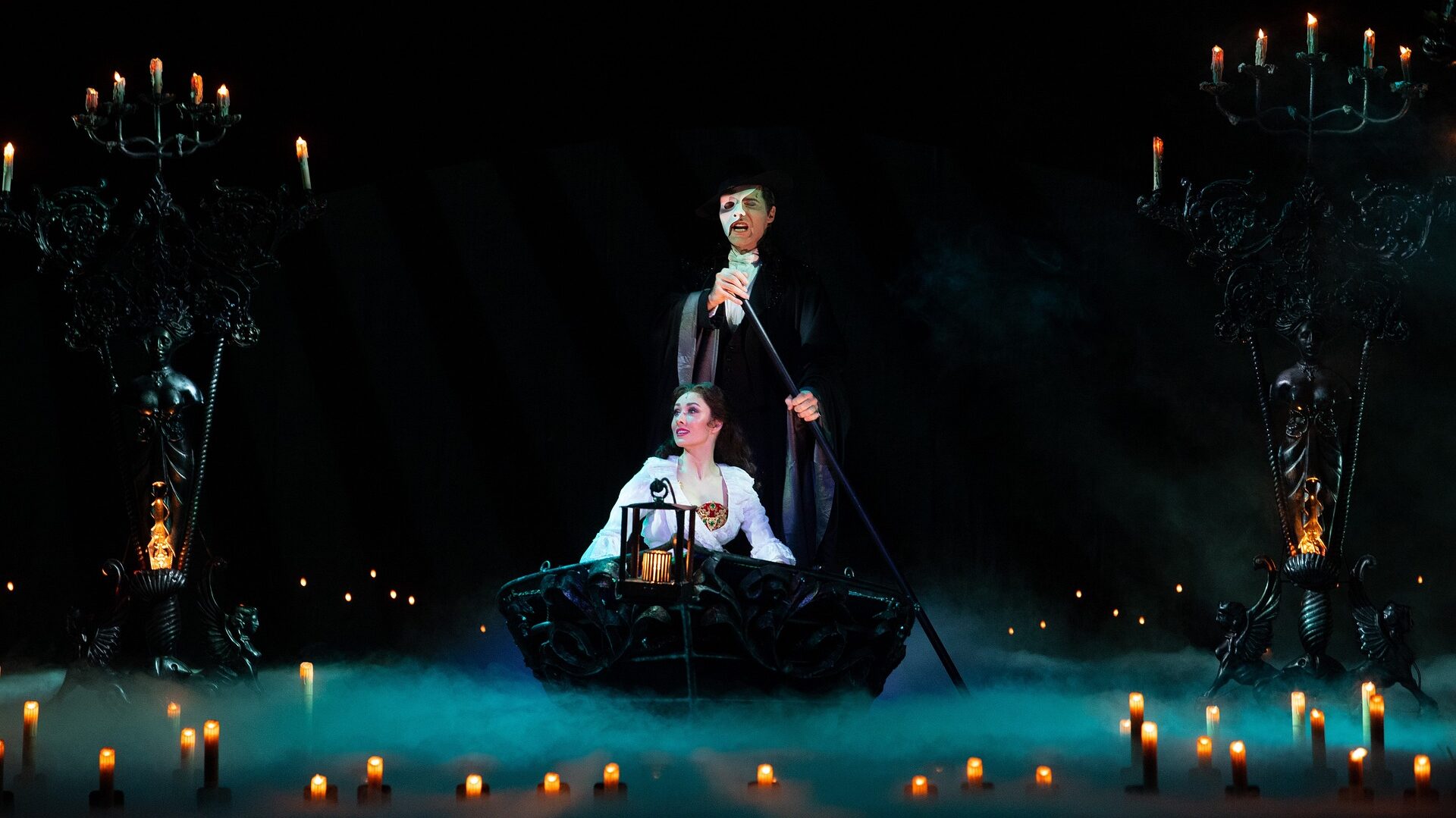
In einer Operette spielt die Musik eine zentrale Rolle. Sie ist lebhaft, voller Charme und trägt dazu bei, dass die Zuschauer in eine Welt voller Freude und Leichtigkeit eintauchen können. Die Musik in einer Operette ist oft von Walzern und Polkas geprägt und wird von einem Orchester begleitet. Die Melodien sind eingängig und leicht zu merken, sodass das Publikum oft mitsummen oder sogar mitsingen kann.
Die Musik in einer Operette unterstützt die Handlung und die Charaktere und trägt dazu bei, dass die Stimmung auf der Bühne immer passend ist. Oft werden auch Gesangsnummern in die Handlung eingebaut, die das Publikum begeistern und zum Lachen bringen. Insgesamt ist die Musik in einer Operette ein wichtiger Bestandteil, der dazu beiträgt, dass die Zuschauer eine unvergessliche und unterhaltsame Zeit erleben können.
Die Themen in Opern und Operetten
In Opern und Operetten werden oft unterschiedliche Themen behandelt. Während in Opern oft ernste Themen wie Liebe, Macht oder Tod im Vordergrund stehen, geht es in Operetten oft um humorvolle Geschichten und romantische Verwicklungen. Beliebte Themen in Operetten sind zum Beispiel die Liebe zwischen einem armen Mann und einer reichen Frau, oder auch die Verwechslung von Identitäten. Aber auch politische Themen und gesellschaftliche Konflikte können in Operetten aufgegriffen werden. Eines haben jedoch alle Themen in Operetten gemeinsam: Sie werden auf eine leichte und charmante Art präsentiert und mit viel Musik und Gesang untermalt.
Wie man eine gute Operette erkennt
Wenn du eine Operette besuchst, möchtest du sicherlich eine unterhaltsame Zeit haben. Eine gute Operette sollte lustig, lebhaft und voller Charme sein. Es ist wichtig, dass die Musik und die Handlung harmonieren und dass die Charaktere gut entwickelt sind. Eine Operette sollte dich zum Lachen bringen und dich mit ihren eingängigen Melodien mitreißen. Wenn du also auf der Suche nach einer guten Operette bist, achte darauf, dass sie diese Kriterien erfüllt. Wenn du das Gefühl hast, dass du während der Vorstellung lächelst, mit den Charakteren mitfieberst und die Musik dich in ihren Bann zieht, dann hast du eine gute Operette gefunden.
Warum sind wir heutzutage noch von der Operette fasziniert?
Die Operette ist eine Kunstform, die seit vielen Jahrzehnten das Publikum begeistert. Doch warum sind wir heutzutage noch von der Operette fasziniert? Vielleicht liegt es daran, dass sie uns in eine andere Welt entführt, in der Musik, Tanz und Gesang eine harmonische Einheit bilden. Oder es ist die Leichtigkeit und der Charme, die uns in den Bann ziehen. Die Operette ist ein Ort, an dem wir für einen Moment dem Alltag entfliehen und uns von den humorvollen Geschichten und den mitreißenden Melodien verzaubern lassen können. Auch in der heutigen Zeit gibt es noch zahlreiche Operetten, die das Publikum begeistern und zeigen, dass diese Kunstform auch in der modernen Gesellschaft noch ihren Platz hat.
Warum sich die Erfahrung mit der Operette lohnt
Du fragst Dich vielleicht, ob sich ein Besuch in der Operette wirklich lohnt. Die Antwort ist ein klares Ja! Die Operette ist ein Genre, das Dich mit seiner Lebhaftigkeit und seinem Charme begeistern wird. Mit ihren eingängigen Melodien und humorvollen Geschichten bietet sie ein unterhaltsames Erlebnis für alle Altersgruppen. Zudem ist die Operette eine großartige Möglichkeit, um in die Welt der klassischen Musik einzutauchen, ohne sich überfordert zu fühlen. Die Bühnenbilder und Kostüme sind oft aufwendig gestaltet und tragen zur magischen Atmosphäre bei. Also, lass Dich von der Operette verzaubern und erlebe einen unvergesslichen Abend voller Freude und Spaß!
Musical
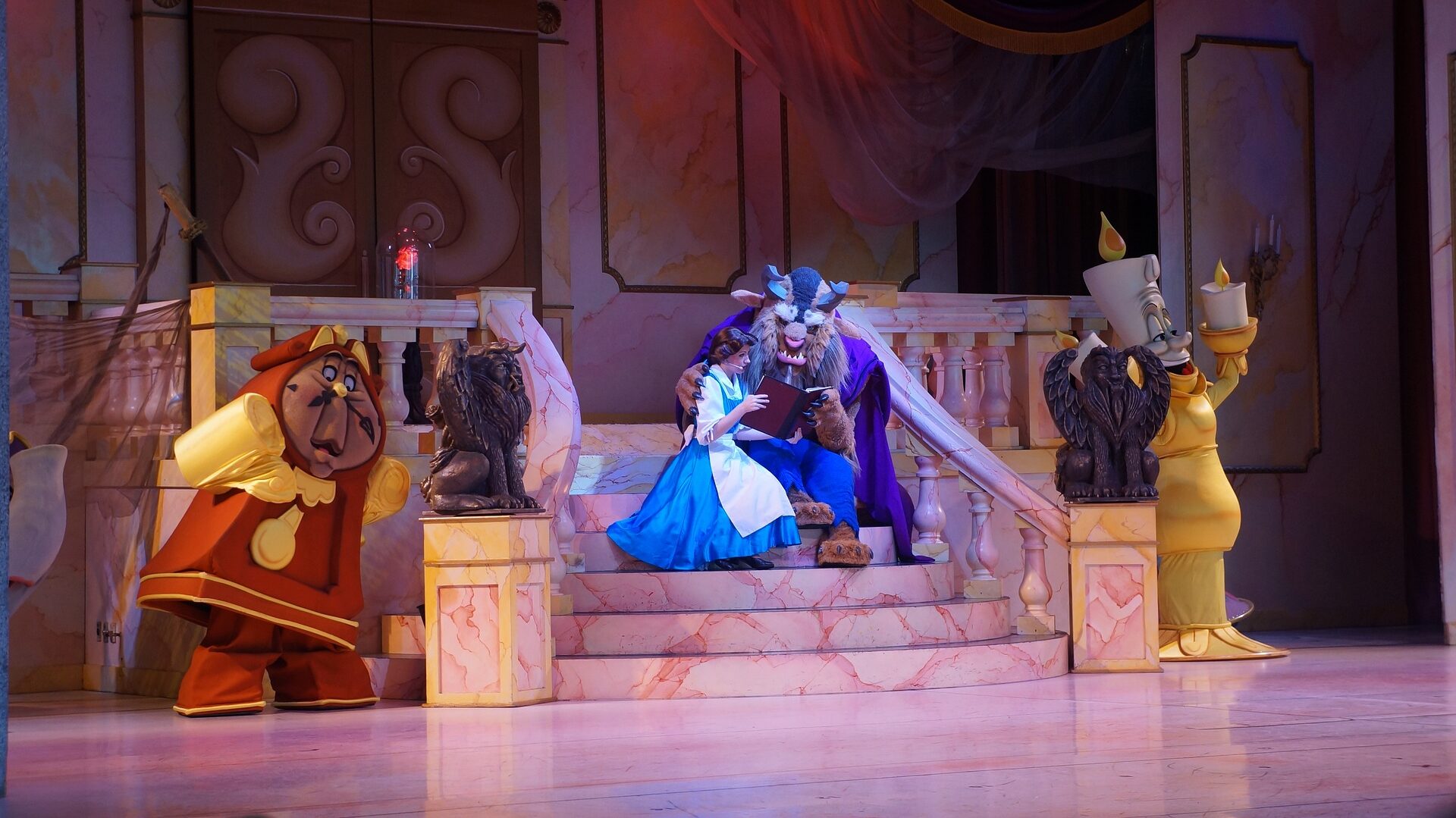
Lassen Sie sich von der Magie des Musicals verzaubern und tauchen Sie ein in die mysteriöse Welt! Erleben Sie aufregende Geschichten, fesselnde Musik und faszinierende Charaktere. Genießen Sie die Vielfalt des Musicals und lassen Sie sich auf ein einmaliges Abenteuer ein!
Die Faszination des Musicals – Einblick in die magische Welt der Musik und Tanz
Du hast schon immer eine Leidenschaft für Musik und Tanz? Dann solltest Du unbedingt einmal in die magische Welt des Musicals eintauchen! Hier vereinen sich die beiden Elemente zu einem unvergesslichen Erlebnis. Die Faszination des Musicals liegt darin, dass es eine Geschichte erzählt und gleichzeitig durch die Musik und die Choreografie Emotionen transportiert. Es ist ein Zusammenspiel aus Gesang, Tanz und Schauspiel, das den Zuschauer in eine andere Welt entführt.
Die Bühnenbilder und Kostüme sind oft aufwendig gestaltet und tragen dazu bei, dass man sich in eine andere Zeit und einen anderen Ort versetzt fühlt. Die Musik bleibt oft noch lange im Kopf und man kann noch lange von den beeindruckenden Tanzszenen schwärmen. Ein Musicalbesuch ist ein Erlebnis für alle Sinne und lässt Dich für einige Stunden den Alltag vergessen.
Die Geschichte des Musicals – wie es zu dem wurde, was es heute ist
Du bist ein großer Fan von Musicals und hast dich schon oft gefragt, wie diese Kunstform entstanden ist? Dann bist du hier genau richtig! Die Geschichte des Musicals reicht bis ins 19. Jahrhundert zurück. Zu dieser Zeit wurden in den USA vor allem Minstrel Shows aufgeführt, die aus Gesang, Tanz und Schauspiel bestanden. Diese Shows waren jedoch rassistisch und diskriminierend und wurden deshalb später durch andere Formate ersetzt.
Eine wichtige Rolle spielte dabei das Musical „Show Boat“ von Jerome Kern und Oscar Hammerstein II, das 1927 uraufgeführt wurde. Es handelte von den Problemen der Afroamerikaner und brachte erstmals ernsthafte Themen auf die Musical-Bühne. Seitdem hat sich das Musical stetig weiterentwickelt und ist heute eine der beliebtesten Kunstformen weltweit.
Was macht ein Musical so besonders? – Eine Analyse der Elemente des Musicals
Wenn du schon einmal ein Musical besucht hast, weißt du, dass es eine einzigartige Erfahrung ist. Aber was macht ein Musical eigentlich so besonders? Die Antwort liegt in den verschiedenen Elementen, die zusammenkommen, um eine magische und unvergessliche Erfahrung zu schaffen. Da gibt es zum Beispiel die Musik, die oft eingängig und mitreißend ist und uns dazu bringt, mitzusingen und zu tanzen.
Dann gibt es die Choreografie, die uns in eine andere Welt entführt und uns in eine Geschichte hineinzieht. Aber auch das Bühnenbild, die Kostüme und die Lichteffekte spielen eine wichtige Rolle, um uns in eine andere Welt zu versetzen. All diese Elemente zusammen machen ein Musical zu einem einzigartigen Erlebnis, das uns für Stunden in eine andere Welt entführt und uns mit einem Gefühl der Begeisterung und des Staunens zurücklässt.
Auf die Bühne! – Ein Blick hinter die Kulissen eines professionellen Musicals
Stell dir vor, du sitzt im Publikum eines professionellen Musicals und genießt die atemberaubende Show. Doch hast du dich jemals gefragt, was hinter den Kulissen passiert? Wie wird eine solche Produktion geplant und umgesetzt? Ein Blick hinter die Kulissen eines Musicals kann dir eine ganz neue Perspektive auf das Erlebnis bieten. Du wirst erstaunt sein, wie viel Arbeit und Vorbereitung in jeder einzelnen Szene steckt. Von den Kostümen bis hin zu den Kulissen und der Beleuchtung – jedes Detail wird sorgfältig geplant und umgesetzt. Die Proben sind intensiv und es wird hart gearbeitet, um eine perfekte Show zu liefern.
Doch all das zahlt sich aus, wenn das Publikum in Begeisterung ausbricht und die Darsteller mit Standing Ovations belohnt werden. Ein Blick hinter die Kulissen eines professionellen Musicals ist definitiv eine Erfahrung, die du nicht verpassen solltest.
Erleben Sie das Musical selbst! – Tipps und Ratschläge zur Planung Ihres Besuchs
Wenn du schon immer von einem Besuch im Musical geträumt hast, ist es an der Zeit, diesen Traum wahr werden zu lassen! Aber bevor du dich in die Welt des Musicals stürzt, solltest du ein paar Dinge beachten. Zunächst einmal solltest du dich über das Musical informieren, das du besuchen möchtest. Lies dir die Handlung durch und höre dir die Musik an, um einen Eindruck zu bekommen, ob das Musical deinen Geschmack trifft. Überlege dir auch, welche Sitzplätze du bevorzugst und ob du lieber eine Abend- oder eine Matinee-Vorstellung besuchen möchtest.
Wenn du alles geplant hast, solltest du dich auf den Besuch vorbereiten, indem du dich schick anziehst und genug Zeit einplanst, um vor der Vorstellung noch etwas zu essen oder zu trinken. Wenn du all diese Tipps befolgst, wirst du deinen Besuch im Musical in vollen Zügen genießen können!
Magisch und mysteriös – Erleben Sie die Welt des Musicals
Und so endet unsere Reise durch die magische und mysteriöse Welt des Musicals. Wir haben gelernt, dass Musicals nicht nur aus Gesang und Tanz bestehen, sondern auch eine tiefgründige Geschichte erzählen können. Wir haben uns von den Emotionen der Charaktere mitreißen lassen und uns von den beeindruckenden Bühnenbildern verzaubern lassen. Egal ob klassische Musicals wie „Phantom der Oper“ oder moderne Stücke wie „Hamilton“ – jedes Musical hat seinen eigenen Charme und seine eigene Magie. Wenn du das nächste Mal die Gelegenheit hast, ein Musical zu besuchen, zögere nicht und tauche ein in diese wunderbare Welt voller Musik und Emotionen. Du wirst es nicht bereuen!
Ballett
Das Ballett ist eine magische Welt voller Schönheit, Eleganz und Präzision. Es ist eine Kunstform, die das Leben derjenigen, die sich ihr verschreiben, für immer verändert. Ballett und die Bühne verbindet ein lebenslanges Engagement – ein Engagement, das sich in jeder Bewegung, jeder Note und in jeder Performance manifestiert. Lasst uns herausfinden, was es bedeutet, ein lebenslanges Engagement für Ballett und die Bühne einzugehen.
Ballett: Ein Grundpfeiler des Theaters
Ballett ist ein Grundpfeiler des Theaters und hat eine lange Tradition auf der Bühne. Es ist eine Kunstform, die Körperbeherrschung, Eleganz und Ausdruckskraft vereint und das Publikum in eine andere Welt entführt. Die Tänzerinnen und Tänzer auf der Bühne sind wahre Athleten und verbringen Jahre damit, ihre Technik und Ausdrucksfähigkeit zu perfektionieren. Aber das Ballett ist nicht nur eine Kunstform, sondern auch ein lebenslanges Engagement. Viele Tänzerinnen und Tänzer verbringen ihr ganzes Leben damit, sich zu verbessern und neue Herausforderungen anzunehmen. Sie müssen hart arbeiten, um ihre Fähigkeiten aufrechtzuerhalten und sich ständig weiterzuentwickeln. Das Ballett ist also nicht nur ein Grundpfeiler des Theaters, sondern auch ein Grundpfeiler des Lebens für viele Tänzerinnen und Tänzer.
Die Magie der Bühne: Wie die Tänzerinnen und Tänzer das Publikum fesseln
Wenn die Tänzerinnen und Tänzer auf der Bühne stehen, scheint es, als würden sie eine magische Welt erschaffen. Ihre Bewegungen sind fließend und anmutig, ihre Körper scheinen schwerelos zu sein. Doch wie schaffen sie es, das Publikum so zu fesseln? Es ist nicht nur ihre Technik, sondern auch ihre Ausdrucksstärke und Emotionen, die das Publikum in ihren Bann ziehen. Jeder Schritt, jede Bewegung, jeder Blick ist perfektioniert, um die Geschichte zu erzählen und die Emotionen zu vermitteln.
Das Publikum wird auf eine Reise mitgenommen, die es in eine andere Welt versetzt und für einen Moment den Alltag vergessen lässt. Es ist diese Magie, die das Ballett zu einem lebenslangen Engagement macht, sowohl für die Tänzerinnen und Tänzer als auch für das Publikum. Denn jedes Mal, wenn man eine Aufführung besucht, erlebt man etwas Neues und Einzigartiges, das einen tief berührt und inspiriert.
Erfolg durch Disziplin: Der Weg zur Meisterschaft im Ballett
Du möchtest im Ballett erfolgreich sein und zur Meisterschaft gelangen? Dann ist Disziplin der Schlüssel zum Erfolg. Disziplin bedeutet, dass Du hart arbeitest, konzentriert bleibst und hartnäckig bist, auch wenn es schwierig wird. Es ist wichtig, dass Du Deine Ziele kennst und Dir realistische Ziele setzt. Du solltest Dich auf Deine Technik konzentrieren und hart an Dir arbeiten, um Deine Fähigkeiten zu verbessern. Disziplin bedeutet auch, dass Du Deinen Körper pflegst und auf Deine Ernährung achtest.
Es ist wichtig, dass Du genug Schlaf bekommst und Dich ausreichend erholst. Wenn Du diszipliniert bist, wirst Du in der Lage sein, Deine Ziele zu erreichen und zur Meisterschaft im Ballett zu gelangen. Disziplin ist der Schlüssel zum Erfolg, aber es erfordert auch Geduld und Ausdauer. Wenn Du hart arbeitest und Deine Ziele im Auge behältst, wirst Du eines Tages auf der Bühne stehen und Dein Publikum mit Deiner Schönheit und Anmut beeindrucken.
Das Leben eines professionellen Ballettsolisten: Eine emotionale Reise auf der Suche nach Perfektion
Du hast sicherlich schon einmal eine Ballettvorstellung besucht und die Anmut und Perfektion bewundert, die die Tänzer auf der Bühne präsentieren. Doch was steckt wirklich hinter dieser scheinbar mühelosen Leistung? Ein professioneller Ballettsolist durchläuft eine emotionale Reise auf der Suche nach Perfektion. Es erfordert jahrelanges hartes Training, um die Technik und Ausdruckskraft zu beherrschen, die für eine solche Leistung erforderlich sind.
Die ständige Selbstkritik, die Suche nach Verbesserung und die ständige Herausforderung, das Beste aus sich herauszuholen, können eine enorme emotionale Belastung darstellen. Doch am Ende ist es die Leidenschaft für das Ballett und die Liebe zur Bühne, die das Leben eines professionellen Ballettsolisten zu einer unvergleichlichen Erfahrung machen.
Ein lebenslanges Engagement mit dem Ziel, Freude und Inspiration zu schenken
Wenn man sich für Ballett und die Bühne entscheidet, dann ist das ein lebenslanges Engagement. Es erfordert Disziplin, Ausdauer und Hingabe. Doch es ist auch eine Reise voller Freude und Inspiration. Das Fazit dieses Engagements ist es, anderen Menschen das Gleiche zu schenken. Denn letztendlich geht es darum, Emotionen zu teilen und das Publikum zu berühren. Als Tänzer*in hat man die Möglichkeit, Geschichten zu erzählen und dabei seine eigene Persönlichkeit zum Ausdruck zu bringen.
Man kann andere Menschen inspirieren und ihnen zeigen, dass es sich lohnt, für seine Träume zu kämpfen. Das ist ein Geschenk, das man ein Leben lang mit sich trägt und das die harte Arbeit und die Entbehrungen wert macht. Denn letztendlich geht es darum, das Leben anderer Menschen zu bereichern und ihnen Freude zu schenken.
